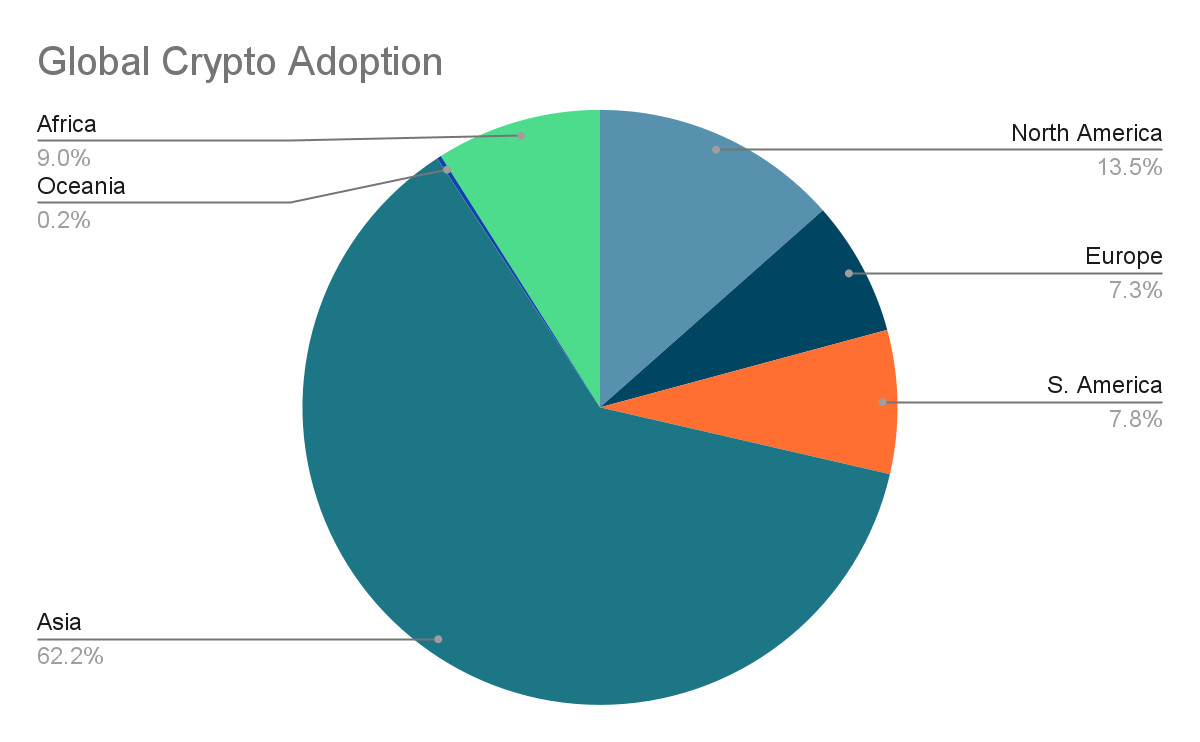The Future of Crypto in Developing Economies

- The Rise of Cryptocurrency Adoption in Developing Economies
- Challenges and Opportunities for Crypto in Emerging Markets
- How Blockchain Technology is Transforming Financial Inclusion in Developing Countries
- Regulatory Hurdles and Innovations in the Crypto Space of Developing Economies
- The Impact of Cryptocurrency on Remittances and Cross-Border Transactions in Developing Nations
- Investment Trends and Potential for Growth in the Crypto Market of Developing Economies
The Rise of Cryptocurrency Adoption in Developing Economies
The rise of cryptocurrency adoption in developing economies has been a significant trend in recent years. As these countries continue to face economic challenges, many people are turning to digital currencies as a way to protect their assets and participate in the global economy. Cryptocurrencies offer a decentralized and secure alternative to traditional banking systems, making them particularly appealing in regions where access to financial services is limited.
One of the key drivers of cryptocurrency adoption in developing economies is the increasing availability of mobile technology. With the widespread use of smartphones, people in these countries can easily access and use digital currencies for everyday transactions. This has helped to bridge the gap between the unbanked population and the global economy, opening up new opportunities for financial inclusion and economic growth.
Another factor contributing to the rise of cryptocurrency adoption in developing economies is the growing distrust in traditional financial institutions. Many people in these regions have experienced economic instability and currency devaluation, leading them to seek out alternative ways to store and transfer their wealth. Cryptocurrencies provide a level of security and transparency that is often lacking in traditional banking systems, making them an attractive option for those looking to protect their assets.
Overall, the future of crypto in developing economies looks promising as more people embrace digital currencies as a means of financial empowerment. With the right infrastructure and regulatory framework in place, cryptocurrencies have the potential to revolutionize the way people in these countries manage their money and participate in the global economy.
Challenges and Opportunities for Crypto in Emerging Markets
When it comes to crypto in emerging markets, there are both challenges and opportunities that need to be considered. One of the main challenges is the lack of regulation and infrastructure in these developing economies. This can lead to uncertainty and volatility in the crypto market, making it difficult for investors to navigate.
However, there are also opportunities for crypto in emerging markets. For example, blockchain technology can provide a secure and transparent way to conduct financial transactions in regions where traditional banking systems are limited. This can help empower individuals who may not have had access to banking services before.
Additionally, crypto can serve as a hedge against inflation in emerging markets, where fiat currencies may be unstable. By investing in crypto assets, individuals can protect their wealth from devaluation and economic uncertainty.
How Blockchain Technology is Transforming Financial Inclusion in Developing Countries
Blockchain technology is revolutionizing financial inclusion in developing countries by providing secure and transparent transactions for individuals who may not have access to traditional banking services. This technology allows for peer-to-peer transactions without the need for intermediaries, reducing costs and increasing efficiency.
One of the key benefits of blockchain technology is its ability to provide a secure and immutable record of transactions, which can help individuals build a credit history and access financial services that were previously unavailable to them. This can help empower individuals to take control of their finances and participate more fully in the economy.
By using blockchain technology, individuals in developing countries can also access a wider range of financial services, such as microloans, insurance, and remittances, which can help them improve their standard of living and build a more secure financial future. This technology has the potential to bridge the gap between the unbanked and traditional financial systems, creating new opportunities for economic growth and development.
Regulatory Hurdles and Innovations in the Crypto Space of Developing Economies
When it comes to the regulatory hurdles faced by the crypto space in developing economies, there are several key challenges that need to be addressed. One of the main issues is the lack of clear regulations surrounding cryptocurrencies and blockchain technology. This uncertainty can stifle innovation and investment in the crypto sector.
However, despite these challenges, there have been some innovations in the crypto space of developing economies that are helping to overcome these regulatory hurdles. For example, some countries have implemented sandbox regulations that allow crypto startups to test their products in a controlled environment before launching them fully.
Additionally, there has been a growing recognition of the potential benefits of cryptocurrencies and blockchain technology in developing economies. This has led to increased collaboration between governments, regulators, and crypto companies to find solutions that balance innovation with consumer protection.
The Impact of Cryptocurrency on Remittances and Cross-Border Transactions in Developing Nations
One of the most significant impacts of cryptocurrency in developing nations is its effect on remittances and cross-border transactions. Cryptocurrencies have the potential to revolutionize the way money is sent across borders, offering a more efficient and cost-effective alternative to traditional banking systems.
By leveraging blockchain technology, cryptocurrencies can facilitate faster and cheaper cross-border transactions, reducing the reliance on expensive intermediaries such as banks or money transfer services. This can be particularly beneficial for individuals in developing countries who rely on remittances from family members working abroad.
Furthermore, cryptocurrencies can help bypass the limitations of traditional banking systems, which may be inaccessible to many individuals in developing nations. This can empower more people to participate in the global economy and access financial services that were previously out of reach.
Overall, the impact of cryptocurrency on remittances and cross-border transactions in developing nations is poised to bring about positive changes, offering a more inclusive and efficient financial system for individuals in these regions.
Investment Trends and Potential for Growth in the Crypto Market of Developing Economies
The investment trends in the crypto market of developing economies show promising potential for growth. As these economies continue to embrace digital currencies and blockchain technology, there is a growing interest from both individual investors and institutional players. This increased participation is driving liquidity and market capitalization in these regions.
One of the key factors contributing to the growth of the crypto market in developing economies is the lack of traditional banking infrastructure. Many people in these regions do not have access to bank accounts or financial services, making cryptocurrencies an attractive alternative for transacting and investing. This financial inclusion aspect is driving adoption and usage of digital assets.
Furthermore, the volatility of crypto markets presents both risks and opportunities for investors in developing economies. While the price fluctuations can be challenging, they also offer the potential for high returns in a relatively short period. This speculative nature of cryptocurrencies attracts traders looking to capitalize on market movements.



